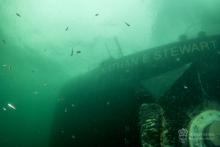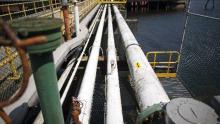The Ahousaht First Nation says mining and clearcutting will be banned in its territory in favour of long-term conservation and sustainable development.
At an event in Tofino Wednesday, hereditary leaders said about 80 per cent of their 200,000-hectare territory will be under environmental protection.
This includes Clayoquot Sound, one of the largest swaths of old-growth forest on the Island and the site of logging protests in the early 1990s.





